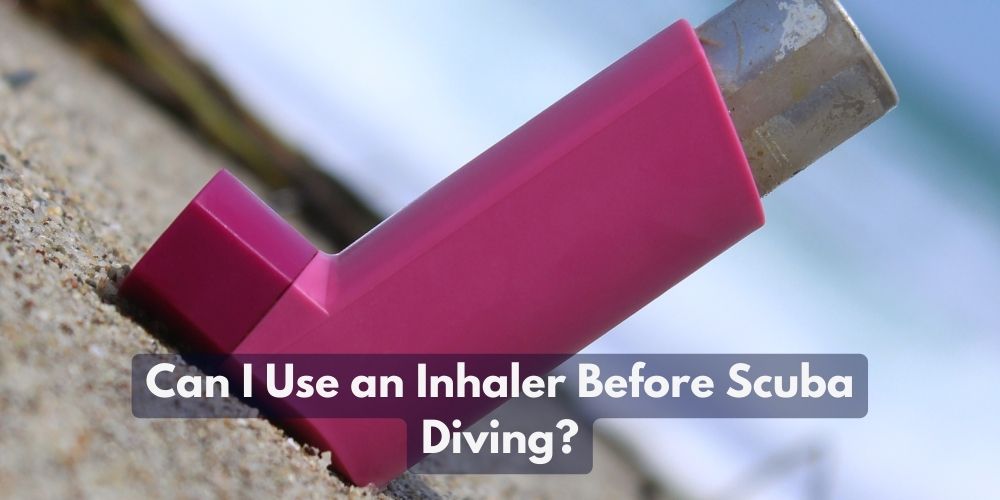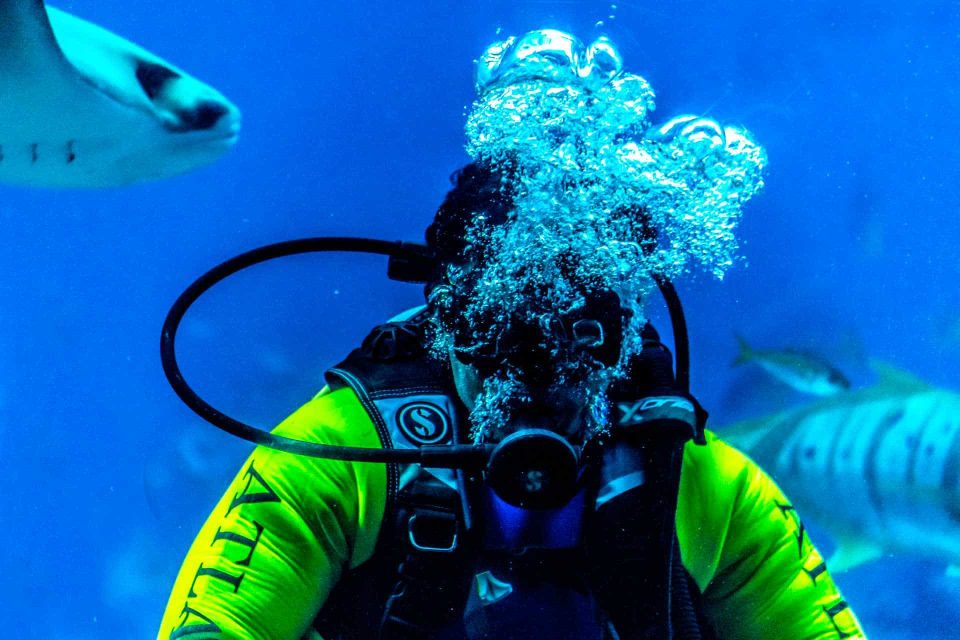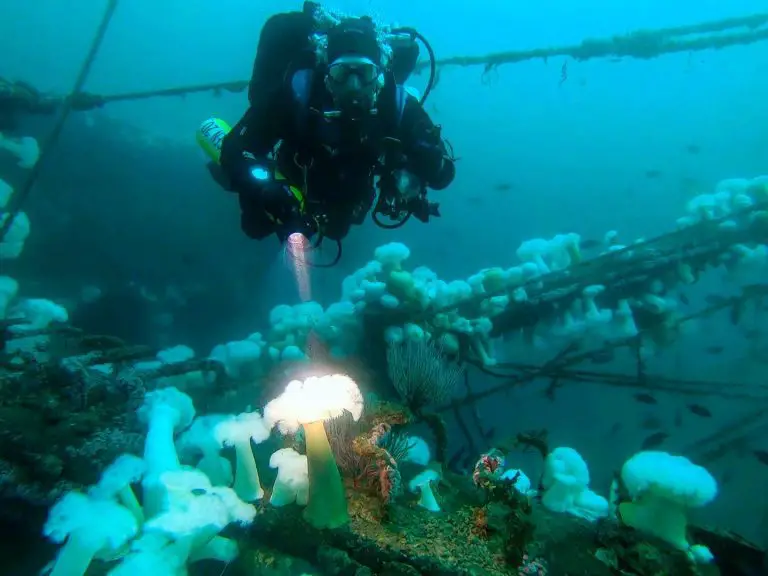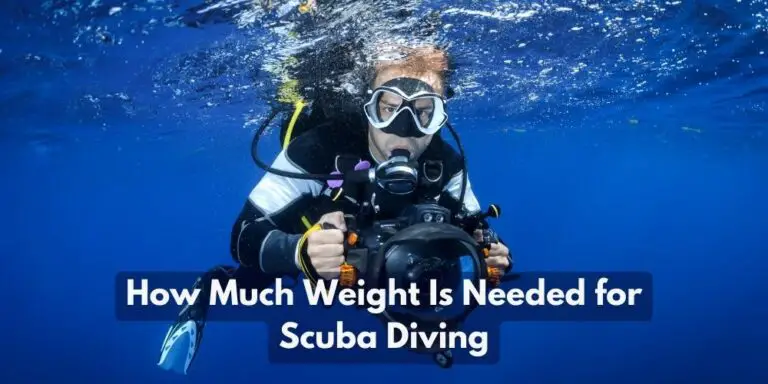
Scuba diving is an exciting activity that allows divers to explore the underwater world. As with any adventure, it’s essential to prioritize your health and safety while diving. One crucial aspect to consider is your respiratory health, particularly if you have pre-existing conditions like asthma or bronchitis.
Many divers wonder if they can use an inhaler before scuba diving to alleviate any potential breathing difficulties underwater. In this blog post, we’ll explore the question; can I use an inhaler before Scuba diving? We will explore the implications, concerns, and what asthmatic patients can do to enjoy this activity.
Can I Use an Inhaler Before Scuba Diving?
Generally, divers can use an albuterol inhaler before diving; however, it’s advised never to dive immediately or within 48 hours of using a rescue inhaler. That said, the decision to use an inhaler before scuba diving depends on several factors and should be made in consultation with a healthcare professional.
Using an inhaler before diving can help alleviate symptoms and improve respiratory function, making breathing easier. However, it’s crucial to understand the specific medication you are using and its potential impact on your body during a dive. Some inhalers contain bronchodilators, which can increase heart rate and potentially affect nitrogen uptake, a vital consideration for scuba diving safety.
Individuals with respiratory conditions should consult their healthcare provider, ideally one familiar with diving medicine, to assess their fitness for diving and discuss the suitability of using an inhaler before submerging. These professionals can provide personalized advice based on your medical history, current condition, and the specific inhaler you use.
Risks Associated with Diving with Respiratory Conditions

Divers with respiratory conditions must be aware of the risks and consult with a healthcare professional experienced in diving medicine. Understanding the potential complications associated with diving with respiratory conditions empowers divers to make informed decisions regarding their safety and well-being:
1. Increased Risk of Air Trapping
Individuals with respiratory conditions such as asthma or chronic obstructive pulmonary disease (COPD) may experience air trapping, where air becomes trapped in the lungs. This can lead to difficulties equalizing pressure during ascent and descent, potentially resulting in barotrauma, such as pneumothorax or ruptured lung tissue. Diving with uncontrolled air trapping poses a significant risk to divers and can lead to serious complications.
2. Reduced Lung Function
Respiratory conditions can impair lung function, reducing the amount of oxygen available to the body. Underwater, with lower oxygen levels, can increase the risk of hypoxia (low oxygen levels) and carbon dioxide retention. These physiological changes can have detrimental effects on the diver’s cognitive abilities, coordination, and overall well-being.
3. Increased Susceptibility to Pulmonary Barotrauma
Divers with respiratory conditions are more susceptible to pulmonary barotrauma, a condition caused by rapid changes in pressure. The compromised lung function can make the lungs more vulnerable to injury, such as alveolar rupture or air embolism. These injuries can be life-threatening and require immediate medical attention.
4. Exacerbation of Respiratory Symptoms
Diving with an underlying respiratory condition can potentially exacerbate symptoms, such as wheezing, coughing, or shortness of breath. The increased physical exertion and exposure to cold water can trigger bronchospasms, leading to breathing difficulties and reduced comfort during the dive. These symptoms can compromise diver safety and enjoyment.
5. Increased Risk of Decompression Sickness
Respiratory conditions can affect the body’s ability to eliminate nitrogen efficiently. This impaired nitrogen clearance can increase the risk of decompression sickness (DCS), commonly known as “the bends.” DCS occurs when dissolved nitrogen forms bubbles in the body tissues during ascent. Divers with compromised respiratory function may have a reduced capacity to off-gas nitrogen, heightening the risk of DCS.
How to prepare for Scuba diving as an Asthmatic patient
Asthmatic divers can enhance their safety and enjoy their diving experiences by preparing adequately. These preparation tips ensure they can effectively manage their condition while exploring the wonders of the underwater world:
1. Get a Fitness to Dive (FTD) Evaluation
Obtaining a thorough fitness-to-dive evaluation from a healthcare professional experienced in diving medicine is essential for asthmatic divers. This evaluation assesses the individual’s medical history, current condition, and lung function to determine their suitability for diving. It helps identify potential risks or limitations and ensures that the individual is medically cleared to engage in scuba diving.
2. Have Some Swimming Ability
Having basic swimming skills is crucial for asthmatic divers. It enables them to feel comfortable and confident in the water, navigate underwater environments, and handle unexpected situations. Swimming proficiency ensures that divers can safely manage themselves and their breathing while submerged, reducing anxiety and enhancing their overall diving experience.
3. Get a Spirometry Test
Undergoing a spirometry test is an important diagnostic tool for asthmatic divers. This test measures lung function, including the volume and flow rate of air inhaled and exhaled. It provides valuable insights into the severity of asthma and helps healthcare professionals tailor appropriate treatment plans and recommendations for diving. Regular spirometry tests help monitor lung function changes and ensure the diver’s safety.
4. Have Your Inhaler on the Boat
Asthmatic divers should always carry inhalers on the boat or dive site. In case of breathing difficulties or asthma symptoms during or after the dive, immediate access to the inhaler can provide rapid relief and prevent potential complications. Keeping the inhaler accessible ensures divers can manage their condition effectively and maintain optimal respiratory function while diving.
5. Do Not Ascend Faster than the Required Ascent Rate
Following proper ascent protocols is crucial for all divers, including those with asthma. Ascending too quickly increases the risk of decompression sickness (DCS) and can exacerbate asthma symptoms. Adhering to the recommended ascent rate gradually allows the body to off-gas nitrogen and minimizes the potential for DCS. It also helps maintain stable breathing patterns and prevents rapid changes in lung pressure that could trigger asthma symptoms.
6. Abandon Your Dive If You Become Wheezy or Short of Breath
Asthmatic divers should prioritize their health and well-being while diving. If they experience wheezing, shortness of breath, or any other asthma symptoms during the dive, it is crucial to abort the dive immediately. Continuing the dive in such circumstances can lead to further respiratory distress and potentially jeopardize the diver’s safety. Promptly surfacing, seeking fresh air, and assessing the situation calmly are essential for managing asthma-related issues during a dive.
Conclusion
When it comes to the question, “Can I use an inhaler before scuba diving,” the general answer is yes. However, it is crucial for diving enthusiasts with respiratory conditions or concerns about using an inhaler before diving to consult healthcare professionals experienced in diving medicine. These professionals can provide personalized advice, assess individual fitness for diving, and offer guidance tailored to specific circumstances.






